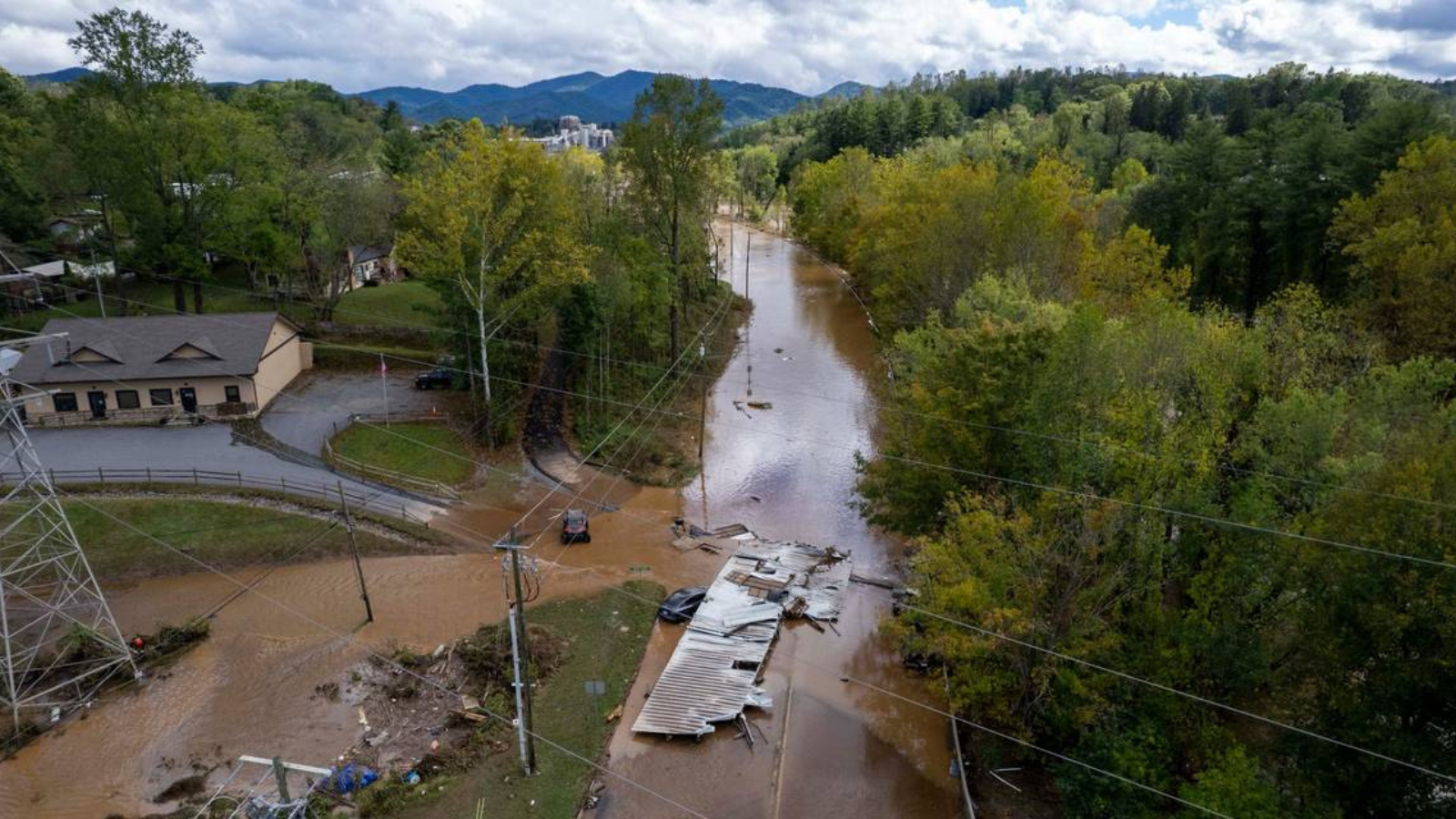Understanding the Needs of Families in Western North Carolina
The Immediate and Long-Term Impacts Surviving Natural Disasters has on Children

The devastation caused by Hurricane Helene in western North Carolina is unprecedented and will continue to require our assistance and support. As communities continue to assess the damage and begin the slow process of rebuilding, the lives of many families will never be the same. Our hearts are with all of those affected by Hurricane Helene. In the immediate aftermath, there are many ways NC State is offering support, including supply drives, volunteer efforts, and more. You can learn about ways to help our Western NC neighbors through NC State Extension’s NC Disaster Information Center.
However, this tragic event is going to continue to affect the communities beyond the immediate needs. For families with children, the devastation is especially concerning because of the potential for long-term harm. As families recover and rebuild their lives, it is important to understand how natural disasters like Hurricane Helene impact children and focus on ways to help children adjust to their new normal.
The Impacts of Natural Disasters on Children
According to a report from the Society for Research in Child Development (SRCD) on “Understanding the Impacts of Natural Disasters on Children,” children who have experienced a natural disaster are more likely to:
- Experience physical health problems and acute illnesses
- Experience mental health symptoms, including PTSD symptoms, depression, difficulty sleeping, fears about safety, and more
- Experience disrupted learning and high rates of school absenteeism
- Face difficulty adjusting to physical displacement from homes, schools, and other safe places
How to Support Children Affected by Natural Disasters
The SRCD report highlights the importance of making evidence-based mental health services available for children and their families. Targeting services for the most vulnerable children was also noted. Focusing on basic needs for food, shelter, and safety are the most immediate concerns, but recovery also means rebuilding the educational infrastructure and supports needed for learning. As the immediate needs are met and focus shifts to long-term recovery, the National Association of School Psychologists (NASP) suggests the following ways to help children cope:
- Talk to children. Take time to discuss events factually, but be careful not to force children to talk if they are not ready and don’t want to share their feelings.
- Listen and observe. Pay attention to changes in behavior and social interactions.
- Highlight compassion and humanity. The outpouring of support from North Carolina and the nation highlights the caring and genuine concern of others.
- Emphasize resilience. Focus on how others are coping and making progress in their recovery efforts.
- Limit media coverage of the disaster. While it is important to stay informed, protect children from being overwhelmed by media coverage.
- Understand how children of different ages react to trauma.
- Preschoolers: Thumb sucking, bedwetting, clinging to parents, sleep disturbances, loss of appetite, fear of the dark, regression in behavior, and withdrawal from friends and routines.
- Elementary School Children: Irritability, aggressiveness, clinginess, nightmares, school avoidance, poor concentration, and withdrawal from activities and friends.
- Adolescents: Sleeping and eating disturbances, agitation, increase in conflicts, physical complaints, delinquent behavior, and poor concentration.
Although children are affected by natural disasters like Hurricane Helene, children are also incredibly resilient. With the love and support pouring in from around North Carolina and the entire country, there is hope, even after a tragedy as monumental as this. We encourage everyone to continue to support not only the immediate needs, but also consider the long-term consequences this event can have on families and communities in western North Carolina.


